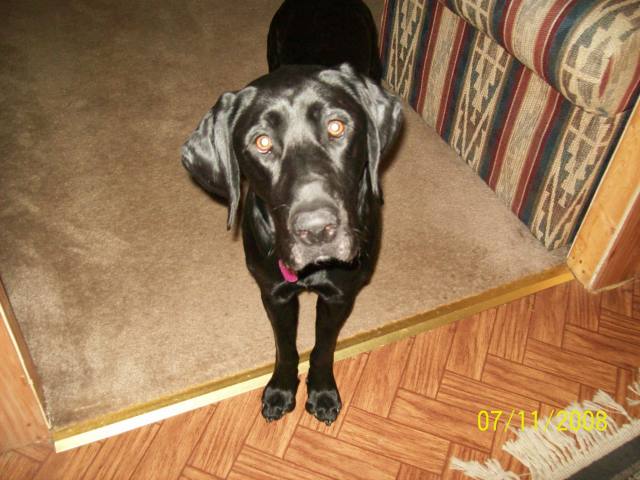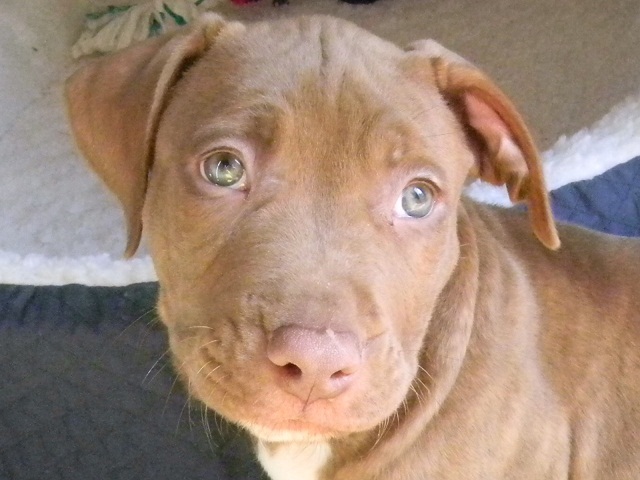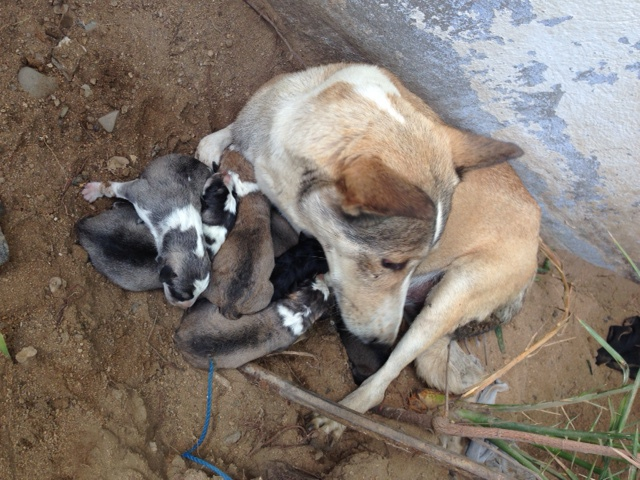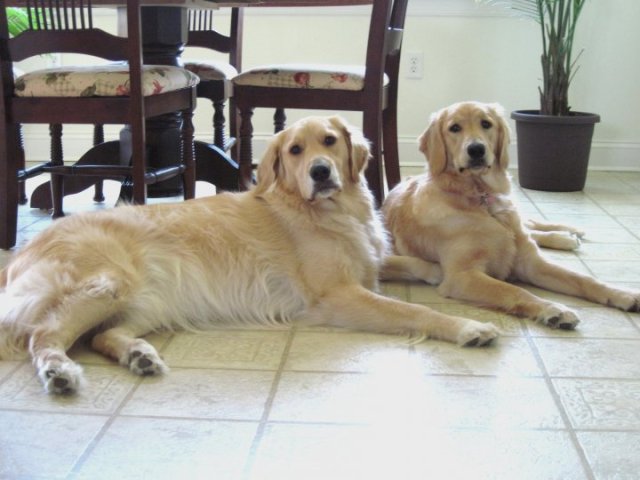QuestionHello, Seeing as my Jack russle will be allowed in the living room, kitchen, dinning area and my bed room I will need to puppy proff it... but how?
Thanks for any info in advance.
AnswerFirstly, you'll need to get a crate. Make sure it is only just big enough for a full grown jack russell to stand up, turn around, and lie down in. If it's too big, he'll start using one end to go to the bathroom and the other to sleep; you don't want that. Begin crate training from day one. Below are some helpful links on how to do that:
For now, keep him crated at night and when you cannot supervise him, but remember that as a general rule, puppies can only hold their bladders for as many hours as they are months old. For example, a puppy that's 8 weeks old (or 2 months) can only hold it for about 2 hours. A puppy that's 12 weeks old (3 months) should be able to hold it for about 3 hours. If he has an 'accident' before the right amount of time has passed, then take him out 15-30 minutes earlier. Do not make a big fuss over his accidents right now. If you catch him in the act, simply tell him "NO" and pick him up and take him outside (on leash of course). It may take a few minutes for him to finish, but when he does, wait until he's through and then lavish the praise on him - both verbally and physically. Let him know that it makes you very happy when he goes outside, and once he's gone, play with him out there for a minute or two before going back in. He'll soon learn that the quicker he goes once you take him outside, the quicker he gets to play. When you take him out, take him to whatever spot in the yard you want him to go, and then just stand there. Be as boring as possible. Do not talk to him, or walk around, or anything; just simply stand there in one spot until he goes to the bathroom. This again will help to teach him to go as soon as he's let out (very handy in cold or rainy weather as you won't have to stand out there as long).
Only allow him out of the crate when someone is home and able to watch him. That way, if/when he starts to chew on something he shouldn't, he can be verbally corrected with a stern "NO" and redirected to something appropriate to chew on (a nylabone or kong toy, for example). If/when he tries to use the bathroom inside, again, he can be verbally corrected and immediately taken outside. Prevention is the absolute BEST way to avoid unwanted behaviors. Until he is fully housebroken and knows the things that are appropriate to chew on versus the things that are inappropriate to chew on, then you can start leaving him loose during the night - then eventually during the day as well.
A baby gate is also a must. You can use it to block him out of rooms that he can either get into mischief in, or that you just do not want him to have access to. It will also help when you start giving him more freedom inside the house. When you get to the point of leaving him loose at night, you can start out by putting up the baby gate to keep him confined to only the hall, or kitchen, or whatever (preferably a place where the flooring is vinyl or linoleum and easy to clean should he have an accident). I still use my baby gate with my 3 year old dog because she has a sensitive stomach and occasionally will throw up bile. When I leave, I put up the baby gate so she only has access to the basement and kitchen just in case she gets an upset tummy.
Puppies can be great fun and great pains at the same time. The only thing you can do is keep a positive outlook and realize that he is just a baby. You wouldn't expect a 2 year old child to behave as a 20 year old person, so you can't expect a 2 or 3 month old puppy to behave the way a 3 or 4 year old dog should behave. There will be extremely frustrating times where you'll seriously consider getting rid of him, and times where you couldn't fathom getting rid of him; just know that it's completely normal and it won't last forever if you take the time to train him. Make sure you schedule an appointment to have him neutered once he is big enough (he should be at least 3 pounds). At around 4-5 months is a good age to do this - BEFORE the hormones kick in and start making him behave badly. Make sure he gets his puppy shots (there are three - one at 8 weeks, one at 12 weeks, and one at 16 weeks), his rabies shot when the vet recommends (it depends on his weight), and another booster shot at around a year old. If you're in an area where he is considered at risk for lyme disease, get that vaccine as well. You'll have to talk to your vet about that one. I do not give any more vaccines after a year old (with the exception of rabies every three years because it's required by law and the kennel cough [bordetella] shot if I must board my dog). If you're interested as to why, let me know and I'll go into it further. Make sure to get him on flea and heartworm prevention as soon as you can. I like Program for fleas. It's a pill, as opposed to the topical treatments like Advantage, Frontline, and Revolution. *I* use oral Ivomec for heartworm, but it must be properly dosed because too much can be very harmful. I recommend Interceptor or HeartGuard for heartworm prevention. Do not EVER use over the counter flea/tick preventatives. They can be extremely toxic and even deadly. Hartz is one brand to avoid at all costs. See www.hartzkills.com for more info on why.
Again, if there is ANYTHING else I can help you with, don't hesitate to let me know! You can even e-mail me directly if you like at blueridgerescue@gmail.com
Kristen

 My 2 yr old blacks eating habits.
Question
Pic of Tula
I have a 2yr old black lab. Her an
My 2 yr old blacks eating habits.
Question
Pic of Tula
I have a 2yr old black lab. Her an
 10 week old Pitbull Pup
Question
Ares
I have a few questions =]
Why does he ke
10 week old Pitbull Pup
Question
Ares
I have a few questions =]
Why does he ke
 Whats the dog type?
Question
1 2
Dear ma`am,
Me and my friend
Whats the dog type?
Question
1 2
Dear ma`am,
Me and my friend
 doggie doldrums
Questionsad dog
QUESTION: I have a 2 year old go
doggie doldrums
Questionsad dog
QUESTION: I have a 2 year old go
 chihuahua pees on bed
Questionme and boo
QUESTION: I have a 9 month ol
chihuahua pees on bed
Questionme and boo
QUESTION: I have a 9 month ol